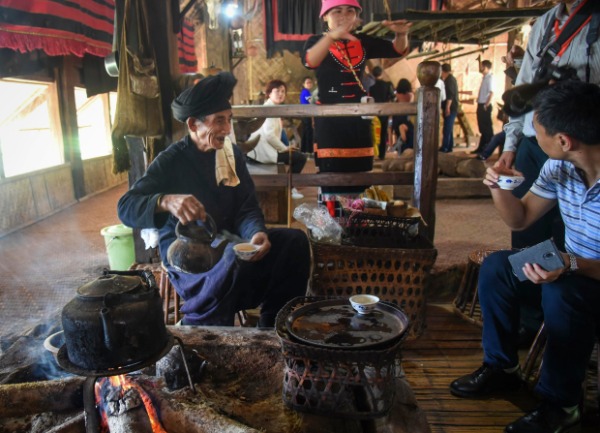Rural tourism brings good fortune
China Daily | Updated: 2018-05-07 09:49

Restaurant owner Xiao Meiying has been dishing up dinners to tourists for about 16 years. She lives in Yunnan province's Wengding - a village of people from the same small ethnic group, the Va, who lived in isolation for centuries.
"I had never seen any people from outside my village and I didn't even know how to speak Putonghua (standard Chinese) at that time," Xiao remembered from earlier days.
Wengding is in the Awa Mountains near the China-Myanmar border. Being remote and rugged, it was long disconnected from the outside world.
But tourism has transformed village fortunes in recent years. During the May Day holiday, thousands of tourists from home and abroad visited the village, bringing a windfall to locals like Xiao.
The village made more than 9 million yuan ($1.4 million) last year, more than 97 percent of it from tourism.
In 2002, the annual per capita income of the more than 1,200 residents in the village was less than 1,000 yuan.
In earlier days, "vegetables and soup were all my family had to eat every day," Xiao said. "Oil was unaffordable. We had no electric appliances, and wooden chairs were the only furniture."
Local officials began promoting tourism in 2002.
"We must encourage tourism. Wengding can't be a living fossil in a museum, away from development," village director Li Hua said.
In the Va language, Wengding refers to floating clouds. Mist often cloaks the mountains and cottages.
Wengding has preserved its thatched cottages and folk customs, such as hanging skulls of oxen, the totem of Va people. They also play wooden drums, the traditional way to communicate with deities.
Xiao was among the first in Wengding to open a restaurant and guesthouse, which have brought her more than 100,000 yuan a year. Her seven-room inn can bring in up to 800 yuan a night during peak season.
Xinhua
























